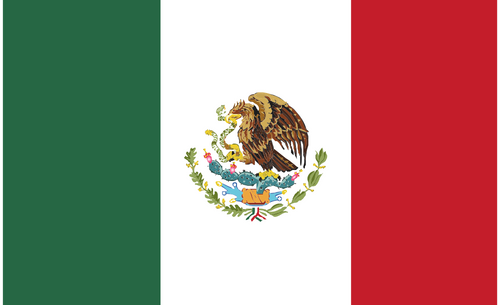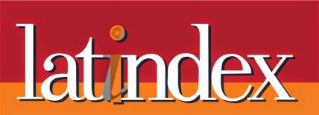Tiempo de polarización: una mirada a la crisis de la democracia a través de la comunicación política populista
DOI:
https://doi.org/10.36105/stx.2024n13.07Palabras clave:
democracia, populismo, polarización afectiva, comunicación políticaResumen
Este artículo tiene por objetivo ofrecer una perspectiva de la actual crisis de la democracia a partir del análisis del discurso político del populismo institucionalizado o populismo en el poder. Al analizar a esta forma de comunicación política, a partir de un enfoque performativo, se argumenta que una causa de la crisis democrática actual es la polarización afectiva, es decir, una forma de fragmentación social basada no en las diferencias políticas sino en una frontera identitaria, cuyo principal componente es la figura de un enemigo al que se despoja de su legitimidad para participar en la toma de decisiones colectivas que caracteriza a una democracia moderna. La construcción de este enemigo, por parte del populismo institucionalizado, se presenta como un significante performativo, es decir, como un elemento discursivo con el que se lleva a cabo una acción política, en este caso, la creación de un tiempo de polarización que provoca una crisis democrática entendida como una clausura de la constante búsqueda por ampliar libertades y derechos.
Descargas
Referencias
Alcántara, M. (2021). La política en América Latina tras la pandemia. En Barragán, M., Borsani, H. y Villareal, M. (Eds.). El mundo pos covid-19. ¿Cambio de paradigma? Latinoamérica 21- Konrad-Adenauer-Stiftung
Águila R. del, et. al. (2016). La democracia en sus textos. Alianza.
Applebaum, A. (2021). El ocaso de la democracia. La seducción del autoritarismo. Debate.
Arancibia Carrizo, J. P. y Salinas Muñoz, C. (eds.) (2016), Comunicación política y democracia en América Latina. Gedisa Editorial.
AA. VV. (2017). El gran retroceso. Un debate internacional sobre el reto urgente de reconducir el rumbo de la democracia. Seix Barral.
Bell, D., Fukuyama, F. y Revel, J-F. (1993). ¿Ideologías sin futuro?, ¿futuro sin ideologías? Editorial Complutense.
Bobbio, N. (2019). La teoría de las formas de gobierno en la historia del pensamiento político. Fondo de Cultura Económica.
Bobbio, N. (2010). Liberalismo y Democracia. Fondo de Cultura Económica.
Bobbio, N. (1986). El futuro de la democracia. Fondo de Cultura Económica. DOI: https://doi.org/10.22201/fcpys.24484903e.1986.2.60044
Bucy, E. P., Foley, J. M., Lukito, J., Doroshenko, L., Shah, D. V., Pevehouse, J. C., & Wells, C. (2020). Performing populism: Trump’s transgressive debate style and the dynamics of Twitter response. New Media & Society, 22(4), 634–658. https://doi.org/10.1177/1461444819893984 DOI: https://doi.org/10.1177/1461444819893984
Canovan M. (2005). The People. Polity Press.
Campbell, J. E. (2016). Polarized: Making sense of a divided America. Princeton University Press. DOI: https://doi.org/10.1515/9781400883448
Castells, M. (2000). La era de la información. Alianza.
Cervi, L., García, F., Marín-Lladó, C. (2021). Populism, Twitter, and COVID-19: Narrative, Fantasies, and Desires. Soc. Sci. 10(8), 294. https://doi.org/10.3390/socsci10080294 DOI: https://doi.org/10.3390/socsci10080294
Cortés Rodas, F. (2020). El desafío del populismo en las sociedades contemporáneas. En de la Peña, J. A., Leyva, G., Lutz-Bachmann, M. y Ortega, A. (coords.), Populismo y globalización en el siglo XXI. El Colegio Nacional-Siglo XXI.
Dahl, R. (2001). La poliarquía. En Battle, A. (Ed.), Diez Textos Básicos de Ciencia Política. Ariel.
Darnton, R. (2017). The True History of Fake News. The New York Review. https://www.nybooks.com/daily/2017/02/13/the-true-history-of-fake-news/
Diamond, L. (2015). Facing Up to the Democratic Recession. Journal of Democracy, 26(1), 141-155. https://doi.org.10.1353/jod.2015.0009 DOI: https://doi.org/10.1353/jod.2015.0009
Esteinou Madrid, J. y Mc Phail Fanger, E. (2022) Dossier “Procesos de comunicación en la Cuarta Transformación”. Argumentos, 35(99), mayo-agosto.
Foa, R. S. y Mounk. Y. (2017). The signs of deconsolidation. Journal of Democracy 28(1), 5-16. https://doi.org/10.1353/jod.2017.0000 DOI: https://doi.org/10.1353/jod.2017.0000
Forero, O. (2003). Democracias de baja intensidad. Opera, 3(3), 19-39.
Gamboa, L. y Jaramillo Jassir, M. (2022). Polarización(es), populismo(s) y democracia(s). Desafíos, 34(2). DOI: https://doi.org/10.12804/revistas.urosario.edu.co/desafios/a.11998
Güvercin, D. (2022). Digitalization and populism: Cross-country evidence. Technology and Society, 68, 101802. https://doi.org/10.1016/j.techsoc.2021.101802 DOI: https://doi.org/10.1016/j.techsoc.2021.101802
Held, D. (2007). Modelos de democracia. Alianza.
Huntington, S. P. (1993). The Third Wave: Democratization in the Late Twentieth Century. Oklahoma University Press.
International IDEA. (2023). The Global State of Democracy. The New Cheks and Balances.
Kazin, Michael (1995). The Populist Passion: An American History. Lawbook Exchange.
Laclau, E. (2005). On Populist Reason. Verso.
Lagos, M. (2018). El fin de la tercera ola de democracias. https://www.latinobarometro.org/latdocs/Annus_Horribilis.pdf
Lapu, N., Rodríguez, M. and Zechmeister, E. (Eds.). (2023). Pulse of democracy. LAPOP.
Lapu, N., Rodríguez, M. and Zechmeister, E. (Eds.). (2021). Pulse of democracy. LAPOP.
Latinobarómetro (2023). La recesión democrática en América Latina.
Levitsky, S., Way, L. (2004). Elecciones sin democracia. El surgimiento del autoritarismo competitivo. Estudios Políticos, (24), 159-176. DOI: https://doi.org/10.17533/udea.espo.1368
Lyotard, J. F. (2006). La condición posmoderna. Cátedra Universitario.
Machlup, F. (1962). The production and distribution of knowledge in the United States. Princeton University Press.
Macpherson, C. B. (2012). The life and times of liberal democracy. Oxford University Press.
Manin, B. (2017). Los principios del gobierno representativo. Alianza.
Manucci, L. (2017). Populism and the media. En Rovira Kaltwasser, C., Taggart, P., Ochoa Espejo, P. y Ostiguy, P. The Oxford Handbook of Populism, 467-488. Oxford University Pres. DOI: https://doi.org/10.1093/oxfordhb/9780198803560.013.17
Masuda, Y. (1984). La sociedad informatizada como sociedad post-industrial. Fundesco.
McCoy, J. (2022). Reflexiones sobre el populismo y la polarización en América Latina y sus consecuencias para la democracia. Desafíos, 34(2), 1-19. https://doi.org/10.12804/revistas.urosario.edu.co/desafios/a.11307 DOI: https://doi.org/10.12804/revistas.urosario.edu.co/desafios/a.11307
McCoy, J., Rahman, T. y Murat, S. (2018) Polarization and the Global Crisis of Democracy: Common Patterns, Dynamics, and Pernicious Consequences for Democratic Polities. American Behavioral Scientist, 62(1),16–42. https://doi.org/10.1177/0002764218759576 DOI: https://doi.org/10.1177/0002764218759576
McIntyre, L. (2018). Posverdad. Cátedra.
Mendieta Ramírez, A. (2018). La democracia en tiempos de incertidumbre. El Bucle de la Comunicación Política. Gedisa Editorial.
Mendieta Ramírez, A. y Estrada Rodríguez, J. L. (2023). Populismo Mediático en América Latina. Tirant Humanidades.
Merkel, W. y Luhrmann, A. (2021). Resilience of democracies: response to iliberal and authoritarian challenges. Democratization, 28 (5), 869-884. https://10.1080/13510347.2021.1928081 DOI: https://doi.org/10.1080/13510347.2021.1928081
Mill. J. S. (2017). Sobre la libertad. Akal.
Moffitt, B. (2022). Populismo. Siglo XXI.
Moffitt, B. (2016). The Global Rise of Populism: Performance, Political Style, and Representation. Stanford University Press. DOI: https://doi.org/10.1515/9780804799331
Morlino, L. (2019). Cambios hacia la democracia. Siglo Veintiuno Editores-Universidad Autónoma de Querétaro-Consejo de Ciencia y Tecnología del Estado de Querétaro.
Mouffe, C. (2018). Por un populismo de izquierdas. Siglo Veintiuno Editores.
Mounk, Y. (2018). El pueblo contra la democracia: Por qué nuestra libertad está en peligro y cómo salvarla. Ediciones Paidós.
Mudde, C. (2004). The populist Zeitgeist. Government and Opposition, 39(3), 541-563. DOI: https://doi.org/10.1111/j.1477-7053.2004.00135.x
Mudde, Cas (2017). Populism: An ideational approach. En Cristóbal Rovira Kaltwasser, Paul Taggart, Paulina Ochoa Espejo y Pierre Ostiguy (coord.), The Oxford Handbook of Populism. Oxford University Press. DOI: https://doi.org/10.1093/oxfordhb/9780198803560.013.1
Mudde, C., y Rovira Kaltwasser, C. (2013a). Populism and (liberal) democracy: A framework for analysis. En Cas Mudde y Cristóbal Rovira Kaltwasser (coord.), Populism in Europe and the Americas: Threat or Corrective for Democracy?. Cambridge University Press. DOI: https://doi.org/10.1017/CBO9781139152365
Müller, J.-W. (2016). What Is Populism? University of Pasadena Press. DOI: https://doi.org/10.9783/9780812293784
Murillo, M. V., Levitsky, S. y Brinks, D. (2021). La ley y la trampa en América Latina. Siglo XXI.
Nora, S., y Minc, A. (1978). L’informatisation de la Societé. La Documentation Francaise.
Ostiguy, P. y Moffitt, B. (2021). Who would identify with an ‘empty signifier’? The Relational, Performative Approach to Populism. En Ostiguy, P., Panizza, F. y Moffitt, B., Populism in Global Perspective. A Performative and Discursive Approach, pp. 47-72. Routledge. DOI: https://doi.org/10.4324/9781003110149-4
O’Donnell, G. (1994) Delegative Democracy. Journal of Democracy, 5(1), 55-69. DOI: https://doi.org/10.1353/jod.1994.0010
Offe, C. (2005). Las nuevas democracias. Editorial Hacer.
Oxford Lenguages (2016). Word of the Year 2016. https://bit.ly/367L8HX
Pappas, T. S. (2019). Populism and Liberal Democracy. A Comparative and Theoretical Analysis. Oxford University Press. DOI: https://doi.org/10.1093/oso/9780198837886.001.0001
Pappas, T. S. (2018). Dealing with modern illiberal democracies: From vintage electoral autocracy to today’s jumble of populism with nativism. En Muis, A., Trost, L. van (Eds.). Will human rights survive iliberal democracy? Amnesty International.
Penteado, C., Goya, D. H., dos Santos, P. D., Jardim, L. (2022). Populismo, desinformação e Covid-19: comunicação de Jair Bolsonaro no Twitter. Media & Jornalismo, 22(40), 239-260. https://doi.org/10.14195/2183-5462_40_12 DOI: https://doi.org/10.14195/2183-5462_40_12
Peruzzotti, E. (2013). Populism in democratic times: Populism, representative democracy and the debate on democratic deepening. En Carlos de la Torre y Cynthia J. Arnson (coord.), Latin American Populism in the Twenty-First Century. Johns Hopkins University Press.
Rahtje, S., Van Bavel, J. J. y Linden, S. van der (2021). Out-grup animosity engagement on social media. PNAS, 118 (26). https://doi.org/10.1073/pnas.2024292118 DOI: https://doi.org/10.1073/pnas.2024292118
Regt, S. de (2018). Don´t ignore citizen’s vie won democracy when trying to understand illiberal democracy. En Muis, A., Trost, L. van (Eds.). Will human rights survive iliberal democracy? Amnesty International.
Rivero, Ángel (2018), Populismo: ¿cómo destruir la democracia en nombre de la democracia? En Rivero, Á., Zarzalejos, J. y Palacio, J. del (Coords.). Geografía del populismo: un viaje por el universo del populismo desde sus orígenes hasta Trump. Tecnos.
Roberts, K. M. (2022). Populism and Polarization in Comparative Perspective: Constitutive, Spatial and Institutional Dimensions. Government and Opposition, 57, 680-702. https://doi.org/10.1017/gov.2021.14 DOI: https://doi.org/10.1017/gov.2021.14
Rodríguez Zepeda, J. (2014). El espacio de los ausentes: discriminación y representación democrática. En Salazar Carrión, L. Democracia o posdemocracia. Problemas de la representación política en las democracias contemporáneas, XXX-XXX, Fontamara.
Rousseau, J. J. (2007). Contrato Social. Espasa Calpe.
Ruiz-Méndez, A. (16 de octubre de 2023) La paradoja de las burbujas informativas. Este País. https://estepais.com/tendencias_y_opiniones/paradoja-burbujas-informativas/
Ruiz-Méndez, A. (2022). Tiempo de preguntas. Retos de la democracia latinoamericana. Logos, 139, 13-30. https://doi.org/10.26457/lrf.v139i139.3345 DOI: https://doi.org/10.26457/lrf.v139i139.3345
Ruiz-Méndez, A. (2021). La polarización en las democracias contemporáneas. Esbozo de un modelo analítico de comunicación política populista. Sintaxis, (7), 33-49. https://doi.org/10.36105/stx.2021n7.02 DOI: https://doi.org/10.36105/stx.2021n7.02
Salazar Carrión, L. (2014). Presidencialismo: ¿autocracia o democracia? En Salazar Carrión, L. (coord.) ¿Democracia o posdemocracia? Fontamara.
Salmon, C. (2019) La era del enfrentamiento. Del storytelling a la ausencia del relato. Ediciones Península. Versión Kindle.
Sani, G. y Sartori G. (1980). Polarización, fragmentación y confrontación en las democracias occidentales. Revista del Departamento de Derecho Político, 7, 9-37. DOI: https://doi.org/10.5944/rdp.7.1980.8032
Sartori, G. (1991). Teoría de la Democracia. Alianza.
Sartori, G. (1976). Parties and Party Systems: a framework for análisis. Cambridge University Press.
Schedler, A. (2023). Rethinking Political Polarization. Political Sciencie Quarterly, Vol. 00 (0), 1-25. https://doi.org/10.1093/psquar/qqad038 DOI: https://doi.org/10.1093/psquar/qqad038
Schumpeter, J. (2016). Capitalismo, socialismo y democracia. Página Indómita.
Sisk, T. (2017). Democracy and Resilience: Conceptual Approaches and Considerations. International Institute for Democracy and Electoral Assistance. https://www.idea.int/gsod-2017/
Spijkers, O. (2018). Public participation in an illiberal democracy. En Muis, A., Trost, L. van (Eds.). Will human rights survive iliberal democracy? Amnesty International.
Stravakakis, Y. (2018). Paradoxes of Polarization: Democracy’s Inherent Division and the (Anti-) Populist Challenge. American Behavioral Scientist, 1-16. https://doi.org/10.1177/0002764218756924 DOI: https://doi.org/10.1177/0002764218756924
Taylor, C. (1994). La ética de la autenticidad. Ediciones Paidós.
Terchek, R., Conte, T. (eds.). (2001). Theories of Democracy. A Reader. Rowman & Littlefield Publishers.
The Economist Intelligence Unit. (2023). Democracy Index. Frontline democracy and the battle for Ukraine.
Tocqueville, A. de (2020). La democracia en América. Fondo de Cultura Económica.
Trejo Delarbre, R. (2022). Posverdad, populismo, pandemia. Ediciones Cal y Arena.
UNESCO (2005). Hacia las Sociedades del Conocimiento. Jouve, Mayenne France.
Urbinati, N. (2023). Teoría política del populismo. En Revista Mexicana de Sociología 85 (número especial), 197-225.
Urbinati, N. (2019). Me the People. How Populism Transform Democracy. Harvard University Press. DOI: https://doi.org/10.4159/9780674243576
Urbinati, N. (2014). Democracy Disfigured. Opinion, Truth, and the People. Harvard Univesity Press. DOI: https://doi.org/10.4159/harvard.9780674726383
Urbinati, N. (2006). Representative Democracy. Principles & Genealogy. The University of Chicago Press. DOI: https://doi.org/10.7208/chicago/9780226842806.001.0001
Waisbord, S. (2020). ¿Es válido atribuir la polarización política a la comunicación digital? Sobre burbujas, plataformas y polarización afectiva. SAAP, 14(2), 249-279. https://doi.org/10.46468/rsaap.14.2.A1 DOI: https://doi.org/10.46468/rsaap.14.2.A1
Weyland, K. (2001). Clarifying a contested concept: Populism in the study of Latin American Politics. Comparative Politics, 24 (1): 1-22. https://doi.org/10.2307/422412 DOI: https://doi.org/10.2307/422412
Woldenberg, J. (2021). Contra el autoritarismo. Cal y Arena.
Zakaria, F. (2007). The Future of Freedom: Illiberal Democracy at Home and Abroad. W. W. Norton & Company.
Ziblatt, D., Levitsky, S. (2018). Cómo mueren las democracias. Ariel.

Publicado
Número
Sección
Licencia
Derechos de autor 2024 Dr. Alberto Ruiz-Méndez

Esta obra está bajo una licencia internacional Creative Commons Atribución-NoComercial-SinDerivadas 4.0.
Sintaxis. Revista científica del Centro de Investigación para la Comunicación Aplicada© se distribuye bajo una Licencia Creative Commons Atribución-NoComercial-SinDerivadas 4.0 Internacional.
El autor conserva los derechos patrimoniales sin restricciones y garantiza a la revista el derecho de ser la primera publicación del trabajo. El autor es libre de publicar en cualquier otro medio su artículo, como un repositorio institucional.

















